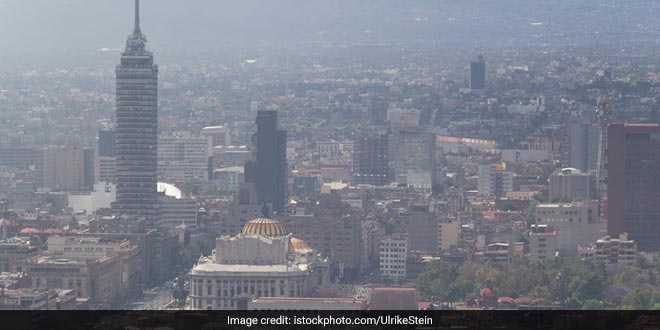Highlights
- Mexico City took 25 years to overcome the problem of air pollution
- Odd-even in Mexico City was on vehicles, not on person using that vehicle
- Unlike India,all cars exported from India to Mexico has catalytic convertor
New Delhi: According to the United Nations, Mexico City was the most polluted city in the world in the year 1992, but now it stands tall in the list of 40 best cities in the world. It took Mexico City 25 years to be where it is today. The coordination between central and state government, policy, legal framework and sheer will of the citizens led to this transformation. Can Delhi, grappling with consistent poor air quality that reaches crisis point every winter, learn something from Mexico City’s experience? Here are the 5 major steps taken by Mexico City to combat its problem of air pollution-
1. ‘Hoy No Circula’ or Today It Doesn’t Circulate
Similar to Delhi’s odd-even traffic regulation scheme, Mexico City had Hoy No Circula which was introduced in 1989. Under this scheme, the movement of vehicles depended on the last number of the registration plate and this helped in banning nearly 2.3 million vehicles one day per week.
Explaining the process, Melba Pria, Mexican Ambassador, currently posted in Delhi says,
In Mexico City, my car that has a number plate ending with 7 does not work on Wednesdays. Even your car that you come from another state cannot circulate on Wednesdays because your car registered number also ends with 7. Even if your car doesn’t say Mexico City, the policy is applicable to you. The policy that we have for Mexico city is the same policy that we have for everybody else.
2. No Car One Day
Along with Hoy No Circula where all privately owned cars are off the roads once a week, according to the last number of the number plate. Additionally, a no car one day was also implemented. With an upgradation to the existing policy, vehicles were forced to remain idle one Saturday a month.
We did a plan for 4 years and in 4 years we said we are going to reduce 7 million tonnes of pollutants in Mexico City only. One day without a car was the program proposed by the citizens in 1988 and it became a public measure in 1994, says Ms Melba Pria.
Also Read: Here’s How Some Cities Around The World Have Executed The Odd-Even Scheme To Check Pollution
3. Exempt Vehicles Not People
Unlike Delhi, Mexico implemented odd-even on vehicles and not on the person using that vehicle. Currently, the odd-even scheme in Delhi exempts women drivers, two-wheelers, politicians and emergency vehicles – despite the fact that two-wheelers are the worst and the biggest contributors to the existing levels of air pollution.
The idea of an odd-even is very good, it is needed. It is needed now. It takes us two weeks to put an odd-even in place. The discussion is if we women or your politicians should have these or that when the discussion should be what type of vehicle should be allowed to circulate not because of the people that are on the vehicle, says Ms Melba Pria.
4. No Politics During Health Emergency
Unlike Delhi, Mexico managed to go beyond politics and come up with a coordinated, long-term and consistent plan. There was an agreement between central and the state government. There is an agreement between all of the states that are around Mexico City because that was the most polluted city in the world. Instead of the blame game, the administration took the responsibility to lead and work towards the welfare of the people.
Appreciating and supporting what Mexico did, Ms Melba Pria says,
You need leadership in every realm of life. You need coordination. You need long-time, consistent, and integral policy and you need action. Everybody has to change their lifestyle.
Also Read: Will Delhi’s Polluted Air Replicate London’s Great Smog Of 1952?
5. Catalytic Convertor, An Exhaust Emission Control Device
A catalytic convertor is an exhaust emission control device that converts toxic gases and pollutants in exhaust, from an internal combustion engine to less toxic pollutants by catalising a redox reaction.
The question that arises is, if India can manufacture such cars for Mexico then why not for themselves? Air pollution is equally harmful for Mexican children and Indian children.
Every car that is exported from India has a catalytic convertor, but the same car in India doesn’t have a catalytic convertor. So, why are Mexican children more important when they are using an Indian car?, questions Ms Melba Pria.
According to the Lancet Commission on Pollution and Health, in 2015, out of 9 million people who died in the world due to air pollution alone, 2.5 million were Indians. There is a need for urgent, sustained efforts with short term and long terms targets. Things won’t change in a day, it will take time, but for a solid start is needed and current lack of cohesion and action plan is anything but a start.
Also Read: From City To Countryside, City Pollution Witnesses Reverse Migration






























